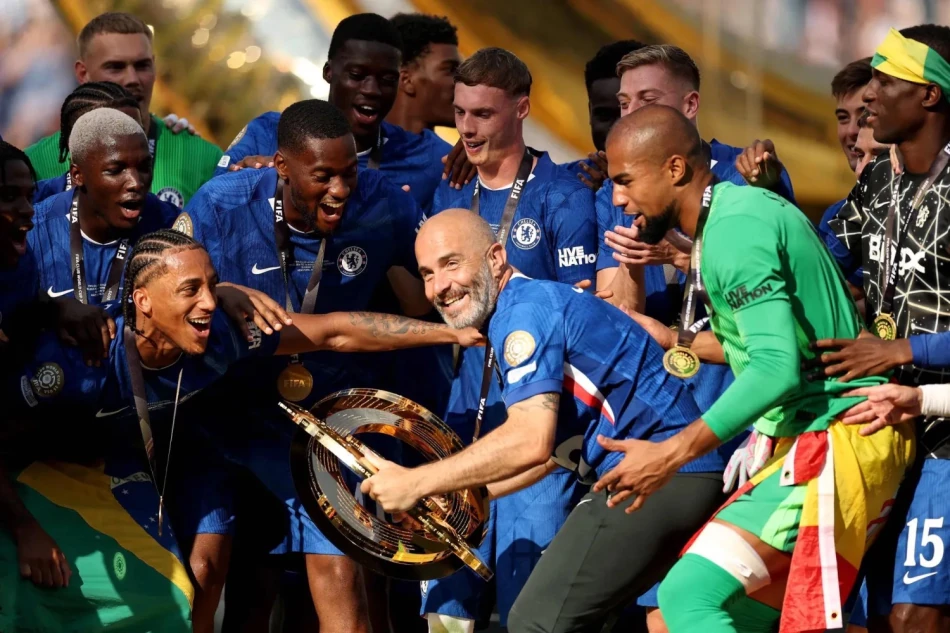
Chelsea's World Cup Victory in 2025: Mariska's Reaction and Insights
Chelsea's Club World Cup Victory Signals New Era for Global Football Competition
Chelsea's commanding victory over Paris Saint-Germain in the inaugural FIFA Club World Cup has prompted coach Enzo Maresca to declare the triumph could rival the Champions League in significance. The Italian manager's bold assessment reflects growing momentum behind FIFA's expanded tournament format, positioning it as a potential game-changer for elite club football's hierarchy.
Maresca's Vision for the Tournament's Future
The Chelsea boss didn't mince words about his expectations for the revamped competition. "I have a feeling this tournament will be as important, or even more important, than the Champions League," Maresca stated following his team's impressive performance against PSG.
This isn't mere post-victory euphoria speaking. Maresca brings credible perspective to his assessment, having served as part of Pep Guardiola's coaching staff when Manchester City claimed the Champions League in 2023. His transition to Chelsea leadership a year ago has already yielded the Conference League title, establishing him as a coach with growing tournament pedigree.
Strategic Approach Pays Dividends
Maresca's tactical blueprint proved decisive against PSG. He instructed his players to launch relentless attacks from the opening whistle, disrupting Paris's rhythm and establishing early dominance. "The message was to make the opposing team understand we were playing to win, and I think we showed that in the first ten minutes," he explained.
The strategy worked perfectly. Cole Palmer emerged as the match's standout performer, netting twice and providing the assist for João Pedro's third goal—all scored in a dominant first half that effectively settled the contest.
Palmer's Rising Star Power
The English international's performance underscored his growing importance to Chelsea's ambitions. Palmer's two-goal display and creative contribution highlight the type of versatile attacking talent that thrives in high-pressure tournament environments.
"I try to do my job every time I step on the pitch and hope to continue in this manner," Palmer said, embodying the professional approach that has made him indispensable to Maresca's system.
PSG's Tactical Struggles
Paris Saint-Germain coach Luis Enrique offered a candid assessment of his team's shortcomings, acknowledging Chelsea's superiority throughout the match. The Spanish manager admitted his side struggled to cope with Chelsea's high-pressure start and failed to capitalize on their limited opportunities.
"Chelsea started the match with high pressure that created problems for us," Enrique conceded. "I think throughout the match Chelsea played very well and therefore deserves the win and the cup. They were simply better than us."
Implications for Global Club Football
Chelsea's triumph carries significance beyond the immediate silverware. The victory grants them the right to display the Club World Cup badge on their jerseys for the next four years—a visible symbol of global supremacy that could influence player recruitment and commercial partnerships.
More importantly, the tournament's inaugural success validates FIFA's vision for an expanded competition that could eventually challenge UEFA's Champions League dominance. With the world's best clubs participating, the tournament offers a truly global stage that transcends regional competitions.
Long-term Competitive Landscape
Maresca's prediction about the tournament's growing importance reflects broader shifts in football's competitive ecosystem. As clubs increasingly operate as global brands, tournaments that offer worldwide exposure and prestige become more valuable than traditional regional competitions.
The success of this inaugural edition suggests FIFA's investment in expanding the Club World Cup format could reshape how clubs prioritize different competitions. For Chelsea, this victory represents not just immediate glory but positioning for football's evolving future.
Most Viewed News

 Sara Khaled
Sara Khaled






